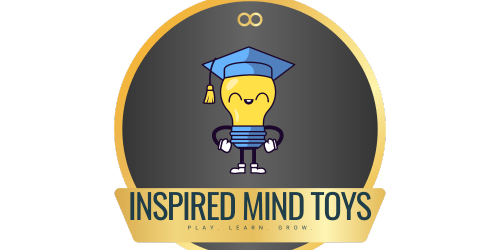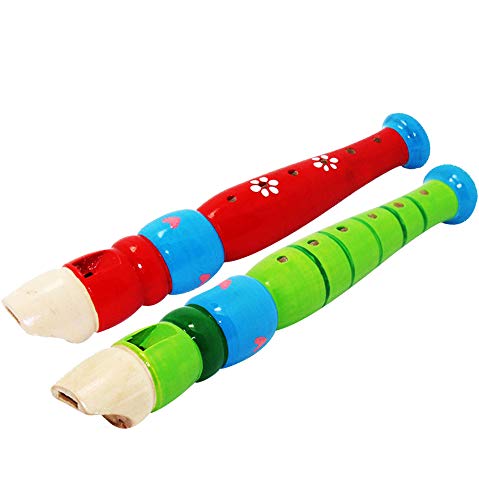Looking for the best musical instruments for your kids? Look no further! In this article, we will explore a variety of options that are perfect for children who have a passion for music. Whether your little one is interested in playing the piano, strumming a guitar, or tapping on a drum, we’ve got you covered. We will provide you with all the information you need to make an informed decision, from instrument recommendations to tips on how to choose the right one for your child. So, get ready to ignite your child’s love for music and watch them blossom into a mini maestro!
Best Musical Instruments For Kids
Understanding the Benefits of Music for Kids
Music has a multitude of benefits for children, going beyond simply providing entertainment. Engaging with music at a young age can have a profound impact on their overall development, including their cognitive and motor skills, creativity, social and emotional skills, as well as fostering discipline and patience.
Developing cognitive and motor skills
When children participate in musical activities, such as playing an instrument or singing, it stimulates their brain development. Research has shown that music can improve memory, attention, and problem-solving skills. By learning to play an instrument, kids are strengthening their fine motor skills, hand-eye coordination, and dexterity. This not only enhances their ability to perform music but also carries over into other areas of their lives, such as writing, typing, and sports.
Cultivating creativity
Music allows kids to express themselves in a unique and creative way. Through playing an instrument or experimenting with different sounds, children can channel their emotions and imaginations. They can compose their own melodies, write lyrics, or even create their own songs. This process of self-expression nurtures their creativity and helps them develop a sense of individuality and originality.
Enhancing social and emotional skills
Participating in group music activities, such as choir, band, or orchestra, helps children develop important social skills. They learn to work together as a team, listen to others, and collaborate harmoniously. Music also has a powerful emotional impact, allowing kids to explore and understand their own feelings as well as connect with the emotions of others. It can be a source of comfort, joy, or inspiration, and fosters empathy and emotional intelligence.
Fostering discipline and patience
Learning to play an instrument requires consistent practice and dedication. This process teaches children the value of discipline and perseverance. They have to set goals, practice regularly, and work through challenges, which cultivates a strong work ethic. Through music, kids learn the importance of patience as they gradually develop their skills over time. These qualities of discipline and patience translate into other areas of their lives, helping them become more focused, determined, and resilient individuals.
The Importance of Choosing Age-Appropriate Instruments
When it comes to introducing children to musical instruments, it is crucial to consider their age, physical capabilities, and developmental stages. Choosing age-appropriate instruments ensures that kids can comfortably handle and play them, promotes safety, and allows for a more enjoyable and successful learning experience.
Considering physical capabilities
Younger children may have limitations in terms of their physical strength and coordination. So, it is important to select instruments that are lightweight, with manageable size, and easy to hold for their little hands. For example, smaller drums or shakers would be more suitable for toddlers, while older kids can handle larger instruments such as guitars or violins.
Acknowledging developmental stages
Children go through different developmental stages, each with unique needs and abilities. It is essential to choose instruments that align with their current stage in order to provide a suitable challenge and prevent frustration. For instance, younger children may benefit from simpler instruments like xylophones or recorders, whereas older kids can explore more complex instruments like pianos or wind instruments.
Essence of safety and durability
Kids can be curious and energetic, so it is crucial to prioritize safety and durability when selecting instruments. Avoid instruments with small parts that can be a choking hazard, and opt for those made from sturdy materials that can withstand the excitement and occasional rough handling of young musicians. Ensuring the safety and durability of instruments promotes a worry-free and long-lasting musical journey.
Keyboard and Piano for Kids
The keyboard or piano is a fantastic instrument for children to start their musical journey. It offers a wide range of benefits and features that cater specifically to their needs and interests.
Introduction to music theory
Learning to play the keyboard or piano provides a solid foundation in music theory. Kids will become familiar with musical notation, reading sheet music, and understanding the basics of melody, harmony, and rhythm. This knowledge is transferable to other instruments and musical activities, making it a valuable skill to have.
Versatile range of sounds
One of the advantages of the keyboard or piano is the ability to produce a wide variety of sounds and styles. Kids can experiment with different tones, play classical pieces, or explore contemporary genres. This versatility allows them to explore their musical preferences and develop their own unique style.
Availability of child-friendly keyboards
For younger children, there are child-friendly keyboards available, designed specifically with their needs in mind. These keyboards often feature colorful keys, interactive learning functions, and pre-programmed songs that make the learning process more engaging and enjoyable. This encourages young musicians to develop a love for music and motivates them to continue their musical journey.
Ukulele for Kids
The ukulele is an excellent choice for kids, offering a range of benefits that make it an ideal instrument for young learners.
Portability and size
The ukulele is a compact and portable instrument, perfect for kids who want to take their music wherever they go. Its small size makes it easier for children to handle and play comfortably, allowing them to focus on learning without feeling overwhelmed by a large instrument.
Ease of learning
Compared to other string instruments, the ukulele is relatively easy to learn and play. It has only four strings, which makes it less complex for beginners. Kids can quickly learn basic chords and strumming patterns, enabling them to play simple songs in a short amount of time. This instant gratification boosts their confidence and motivation to continue learning.
Introduction to string instruments
Learning to play the ukulele serves as a great introductory experience for kids who may later want to explore other string instruments like the guitar or violin. The ukulele helps them develop essential skills such as finger coordination, fretting, and picking, which are transferable to other string instruments. It builds a strong foundation for future musical endeavors.
Percussion Instruments for Kids
Percussion instruments offer a fun and interactive way for kids to explore rhythm and develop their motor skills.
Simplicity of rhythm
Percussion instruments, such as drums, tambourines, or maracas, often involve simple rhythms that are easy for kids to grasp. These instruments allow children to experiment with different beats, create their own patterns, and develop a sense of timing. Playing percussion instruments helps them understand rhythm and enhances their ability to keep a steady beat.
Variety of instruments
Percussion instruments come in a wide range of options, allowing kids to explore different sounds and textures. They can choose from hand drums, cymbals, xylophones, or even homemade instruments like pots and pans. This variety provides a rich and immersive musical experience, encouraging kids to engage with different types of percussion instruments and discover their preferences.
Promotion of fine motor skills
Playing percussion instruments requires precise hand and finger movements. Kids develop their fine motor skills by drumming, shaking, or striking the instruments. This enhances their coordination, strength, and control over their movements, which can benefit their overall physical development. It also improves their ability to manipulate objects and perform intricate tasks in other areas of their lives.
Wind Instruments for Kids
Wind instruments offer a unique musical experience for children, allowing them to explore breath control and produce beautiful melodies.
Beginning with recorders
Recorders are often the first wind instruments that children are introduced to. They are small, portable, and relatively easy to play. Recorders help children learn the basics of breath control, finger placement, and reading music notes. They serve as a stepping stone to more advanced wind instruments while building a strong foundation in music.
Progression to other wind instruments
As kids gain confidence and proficiency with the recorder, they can progress to other wind instruments such as the flute, clarinet, or saxophone. These instruments offer a wider range of musical possibilities and challenges, allowing children to explore different genres and styles of music. Learning to play wind instruments further develops their breath control, technique, and musical expression.
Understanding lung capacity and control
Playing wind instruments requires breath control, which strengthens the lungs and respiratory muscles. Kids learn to control the airflow and produce a consistent, steady sound. This not only improves their lung capacity but also helps them regulate their breathing and develop a sense of calmness and focus. Wind instruments provide a unique opportunity for kids to connect their breath with musical expression.
Violin for Kids
The violin is a classic and versatile instrument that offers numerous benefits for young musicians.
Option of smaller sizes
Violins come in different sizes, making them accessible to children of various ages and sizes. Young kids can start with a smaller violin size, such as a 1/8 or 1/4, and gradually progress to larger sizes as they grow. Having an instrument that fits their body allows for proper posture, comfortable playing, and improved technique.
Intensive skill development
Learning to play the violin requires dedication and practice. Kids develop a strong work ethic as they spend time refining their bowing technique, finger placement, and intonation. The precision required in playing the violin enhances their attention to detail and focus. It is a challenging instrument, but the rewards are immense as children witness their progress and mastery of this beautiful instrument.
Early introduction to classical music education
The violin is often associated with classical music, and learning to play this instrument exposes kids to the rich heritage of classical compositions. They can explore famous pieces by composers such as Bach, Mozart, or Beethoven, and learn about the history and significance of classical music. This early introduction stimulates their musical appreciation and understanding, laying a strong foundation for further musical exploration.
Xylophone for Kids
Xylophones are colorful and fun instruments that provide a fantastic introduction to music for young children.
Encouraging basic music theory
Xylophones are designed with a specific arrangement of bars, each producing a different pitch when struck. Kids can learn basic music theory by experimenting with these bars, understanding higher and lower pitches, and recognizing various notes. The xylophone introduces them to the concept of melody and helps develop their ear for music.
Enhancing motor coordination
Playing the xylophone involves striking the bars with mallets, requiring hand-eye coordination and fine motor skills. Children learn to control their movements and strike the bars accurately to produce the desired sound. This improves their coordination and finger dexterity, which they can apply to other activities that require precise control.
Fun and colorful introduction to music
Xylophones are often designed with vibrant colors and attractive designs, making them visually appealing to children. This creates a fun and engaging environment for young musicians to explore music. With its cheerful tones and playful nature, the xylophone invites kids to experience the joy and excitement of making music.
Guitar for Kids
The guitar is a versatile and popular instrument that can captivate the interest of kids of all ages.
Acoustic guitar for beginners
For younger children or beginners, starting with an acoustic guitar is a great choice. Acoustic guitars are generally lighter and more manageable for kids to hold and play comfortably. They offer a warm and gentle tone, providing a pleasant and enjoyable playing experience for young musicians just starting their musical journey.
Electric guitar for more mature learners
As kids grow older and develop more skills, they may become interested in exploring the world of electric guitars. Electric guitars offer a different sound palette and more opportunities for experimentation with effects and techniques. They allow kids to explore different genres such as rock, blues, or pop, and create a more dynamic and expressive playing experience.
Development of hand and finger strength
Learning to play the guitar improves hand and finger strength as children press down on the strings to produce clear notes and chords. Over time, their hand muscles become stronger, enabling them to play more complex chords, scales, and melodies. This physical development goes hand in hand with their musical progress, allowing them to express themselves more freely on the instrument.
Considering Music Lessons for Kids
While some children may be self-taught or learn through informal methods, formal music lessons can offer numerous benefits and help children reach their full musical potential.
Benefits of formal instruction
Formal music lessons provide a structured and systematic approach to learning an instrument. They offer guidance, feedback, and accountability, which can accelerate a child’s progress and musical development. Trained music teachers can introduce advanced techniques, challenge young musicians, and provide valuable insights and corrections. Formal instruction also exposes kids to a wider range of musical genres and repertoire.
Choosing the right teacher
When considering music lessons for kids, it is essential to choose a teacher who understands their unique needs and learning style. Look for a teacher who is experienced in working with children, patient, and able to create a positive and encouraging learning environment. Building a strong rapport with the teacher fosters a love of music and enhances the learning experience.
Balancing practice and fun
Learning an instrument requires consistent practice, but it is important to strike a balance between structured practice and enjoying the process. Encourage children to set goals, practice regularly, and break challenging tasks into manageable steps. However, it is equally important to make music enjoyable and fun. Encourage them to explore their musical interests, play their favorite songs, and incorporate creativity into their practice sessions. This balance ensures that kids stay motivated and continue to develop their musical skills.
In conclusion, introducing children to the world of music at a young age is a gift that keeps on giving. By understanding the benefits of music and choosing age-appropriate instruments, parents and educators can provide children with a holistic and enriching musical experience. Whether it’s the keyboard, ukulele, percussion instruments, wind instruments, violin, xylophone, or guitar, each instrument offers unique advantages and opportunities for young musicians to develop their skills, creativity, social skills, and discipline. Music lessons, when chosen wisely and balanced with enjoyment, can unlock a child’s musical potential and open doors to a lifetime of musical joy and fulfillment.

















